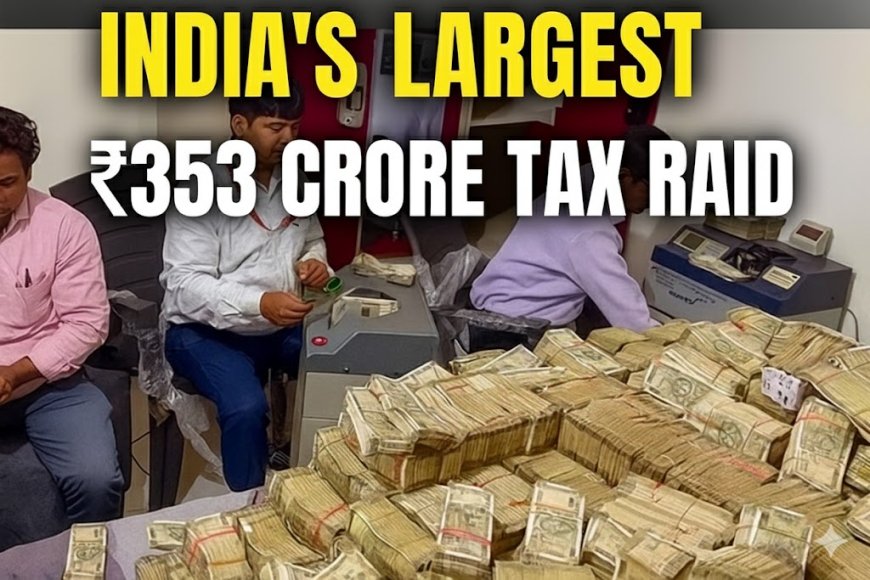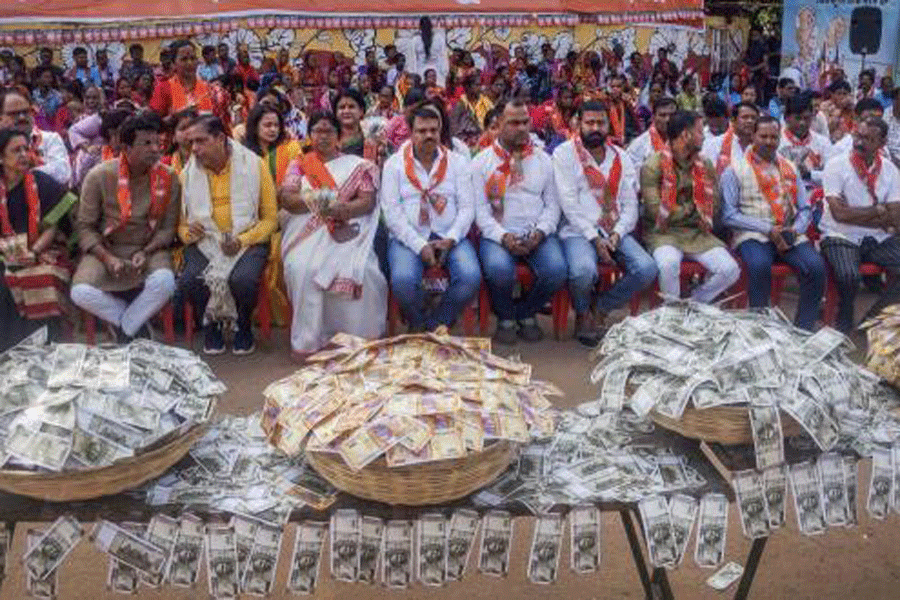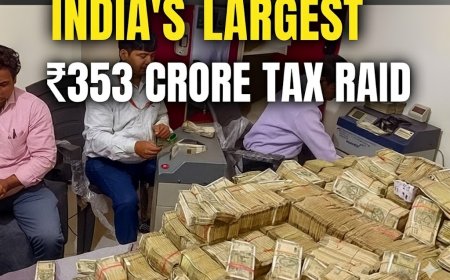India’s Biggest Income Tax Raid: Rs 353 Crore Seized from Boudh Distilleries
India witnessed its largest-ever income tax raid as Rs 353 crore was seized from Boudh Distilleries in Odisha. Learn the details, legal impact, and political implications of this historic crackdown on black money.

When it comes to cracking down on black money, India just set a new record. The recent income tax raid on Boudh Distilleries Private Limited in Odisha has become the largest in the country’s history. Over ten days, authorities uncovered a staggering Rs 353 crore in cash, making this operation unprecedented in scale and execution. The raid didn’t just grab headlines for the amount seized; it also demonstrated how seriously the government is taking financial crime in India.
Understanding Boudh Distilleries Private Limited
Boudh Distilleries Private Limited is a well-known name in the liquor manufacturing industry, operating primarily in Odisha. The company has been under the radar of authorities due to its vast operations and connections with key figures in business and politics. While the distillery produces popular liquor brands, the recent findings suggest that its financial dealings may not have been entirely above board.
Adding a layer of public interest, the company has ties with political figures, including a Congress Rajya Sabha MP from Jharkhand, Dheeraj Sahu. Members of his family hold managerial roles within Boudh Distilleries, which has sparked political debates about the intersection of business and politics in India.
The Scale of the Raid
The income tax raid wasn’t a small operation. Spanning ten days, it involved multiple teams working across Odisha and neighboring states, including Jharkhand and West Bengal. The sheer volume of cash recovered is almost unimaginable: Rs 353 crore. To manage this, authorities deployed 36 note-counting machines and brought in additional manpower, including bank employees, to assist with the counting process.
But cash wasn’t the only target. Special scanning machines equipped with scanning wheels were used to detect valuables buried underground. Trucks escorted by police and paramilitary forces were used to transport the recovered cash safely. The operation’s scale and logistics demonstrate the seriousness with which the Income Tax Department approached this case.
Government Action and Recognition
The raid didn’t just happen quietly behind closed doors. The officers leading the operation received national recognition for their efforts. Principal Director of Income Tax Investigations, SK Jha, and Additional Director, Gurpreet Singh, were honored by the Central Government for their remarkable work in executing the raid efficiently and securely.
 Image Credits: Telegraph India
Image Credits: Telegraph India
Their recognition highlights more than personal achievement. It reflects the government’s commitment to tackling corruption, illegal hoarding of cash, and tax evasion. In recent years, India has intensified its focus on tracking unaccounted wealth, and operations like this send a strong message: financial crime will not be tolerated.
Legal and Financial Implications
Recovering Rs 353 crore is significant, but it’s just the beginning. Under Indian law, undisclosed income is subject to a 100 percent tax along with penalties. That means the financial consequences for Boudh Distilleries and its associates could be massive.
Moreover, the case is likely to escalate under the Prevention of Money Laundering Act (PMLA). This opens the door to criminal prosecution, freezing of assets, and even imprisonment for individuals involved. In short, the repercussions go far beyond paying taxes. Those responsible could face severe legal consequences that extend to both personal and corporate assets.
This operation also serves as a cautionary tale for other businesses. Authorities are making it clear that illegal accumulation of cash and tax evasion will be met with strict enforcement.
Political and Social Context
The involvement of political figures has added another dimension to this story. With family members of a Congress Rajya Sabha MP linked to the distillery, the raid has stirred discussions about how political influence can intersect with business operations. While the focus remains on financial crime, public interest in the political ramifications is inevitable.
Socially, the raid has sparked conversations across media platforms and among citizens about transparency and accountability in business. For many, it’s a reminder that black money isn’t just a distant concept; it directly affects governance, market fairness, and the economy at large.
What This Means for India
Beyond the immediate impact on Boudh Distilleries, this raid has broader implications. It’s a demonstration of the government’s growing capabilities in detecting and handling financial crimes. The use of advanced technology, large-scale manpower, and cross-state coordination shows that authorities are no longer limited by logistical challenges.
For citizens, this is a visible sign that the government is serious about ensuring financial transparency. Businesses that rely on underhanded methods may think twice, knowing that similar operations could target them.
It also sets a precedent for how income tax raids can be executed. Combining intelligence, technology, and strategic planning allows authorities to recover massive sums while maintaining law and order during the process.
Key Takeaways
1. Historic Scale: Rs 353 crore seized over ten days, making this India’s largest-ever income tax raid.
2. Technological Edge: Note-counting machines, scanning equipment, and coordinated manpower ensured the operation’s success.
3. Legal Consequences: Undisclosed income is subject to full tax, penalties, and potential criminal charges under PMLA.
4. Political Implications: Connections with political figures have fueled discussions about accountability in business.
5. Government Stance: The operation reinforces India’s zero-tolerance approach toward black money and corruption.
Conclusion
The raid on Boudh Distilleries Private Limited is more than just a news headline. It’s a statement about the Indian government’s resolve to track and tackle unaccounted wealth. The operation required meticulous planning, technological support, and dedicated manpower to recover Rs 353 crore and uncover hidden assets.
While the financial and legal ramifications for the company and individuals involved will unfold over the coming months, one thing is clear: India is sending a message. Black money, corruption, and tax evasion will be met with decisive action. For citizens and businesses alike, it’s a reminder that financial integrity is not optional.
This historic raid will be remembered not only for the staggering amount of cash recovered but also for setting new standards in India’s fight against illegal financial activities. It’s a turning point in how the country monitors and enforces transparency, ensuring that accountability is more than just a policy—it’s reality.
What's Your Reaction?
 Like
0
Like
0
 Dislike
0
Dislike
0
 Love
0
Love
0
 Funny
0
Funny
0
 Angry
0
Angry
0
 Sad
0
Sad
0
 Wow
0
Wow
0
















































































